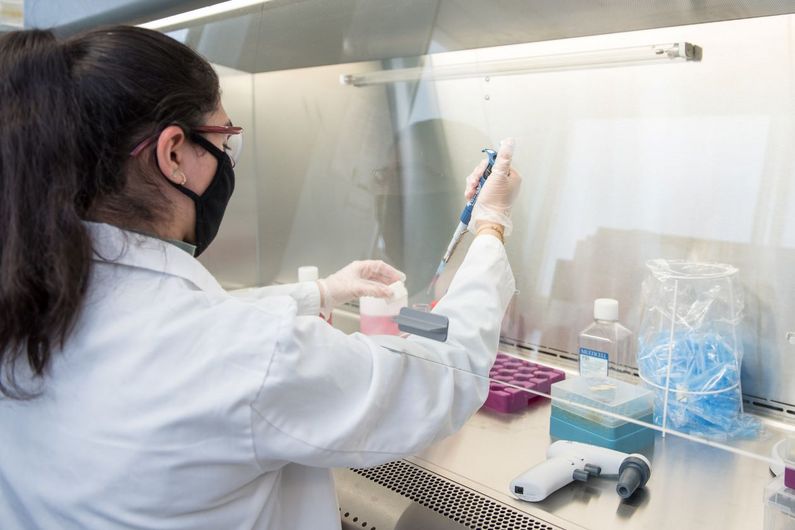Could existing drugs be used against COVID-19?
- Forum
12/16/2020
- Martin LaSalle
Three types of medications approved for other clinical purposes may reduce the inflammatory symptoms caused by the SARS-CoV-2 virus, an UdeM-led study finds.
Several drugs already approved by the U.S. Food and Drug Administration (FDA) could potentially be used to alleviate the symptoms of COVID-19, biomedical researchers at Université de Montréal have found.
The team – led by doctoral student Nehme El-Hachem, working under the supervision of UdeM pharmcology associate professor Moutih Rafei in collaboration with researchers from Canada and other countries – published their findings two months ago in iScience.
Their study highlights three promising types of drugs currently being tested on patients with COVID-19: fostamatinib, baricitinib and corticosteroids. The first two have the potential to prevent excessive inflammation in the lungs in people infected with the coronavirus.
Fostamatinib is used to treat chronic immune thrombocytopenia; it reduces the destruction of platelets by the immune system. Baricitinib is a molecule used to treat the symptoms of rheumatoid arthritis.
Corticosteroids (dexamethasone and betamethasone) are broad-spectrum anti-inflammatory drugs.
Another drug, colchicine, could also help reduce the symptoms of COVID-19, according to the analysis of El-Hachem and Rafei. Usually prescribed to treat gout (gouty arthritis), colchicine is the subject of the ColCorona clinical trial in Quebec.
A list of over 50 drugs

To arrive at these results, El-Hachem analyzed public databases dealing with inflammation caused by COVID-19, coronavirus-infected lung cells and the response that existing drugs could produce.
This led to a list of just over 50 drugs the researchers think could be used quickly, especially since most are already in clinical trials against the coronavirus. “Our results reinforce the validity of our bioinformatics approach,” said Rafei.
“The scientific community should conduct further clinical studies with these FDA-approved drugs as monotherapy or in combination with an antiviral regimen, as they could lead to significant results in acute forms of the disease.
“This new bioinformatics approach, in combination with artificial-intelligence techniques, is promising for the pharmaceutical industry.”
One controversial drug, chloroquine, is not included in the list drawn up based on the researchers' analysis, he added, “because it has no real effect on the disease.”
Two types of vaccines under study
In addition to looking at drugs to ease the symptoms of COVID-19, Rafei is continuing his research to find a vaccine that can immunize humans against SARS-CoV-2.
His laboratory is particularly interested in two types of vaccines: a cellular vaccine and a vaccine using a novel protein-based antigen formulation.
“To create a cellular vaccine, we use the virus's proteins so that they get broken down and come to the surface of our smart cells to activate the T-cells of the immune system,” the researcher explained.
For the second type of vaccine, Rafei is using a new antigen-modifying formula to optimize its expression on the surface of antigen-presenting cells – a technology owned by a Canadian biotech company – again with the goal of stimulating the immune system.
"The creation of these vaccines, however, will still take some time,” he cautioned.













